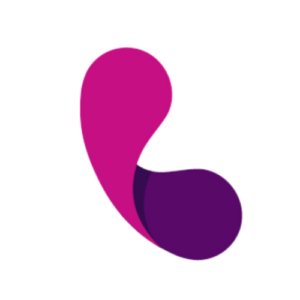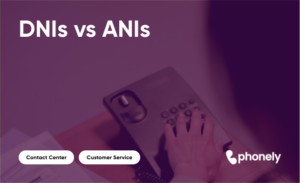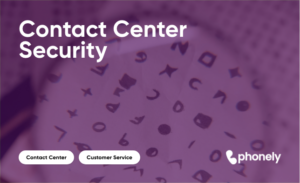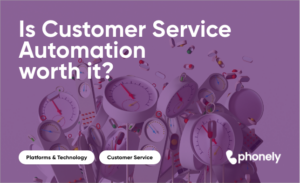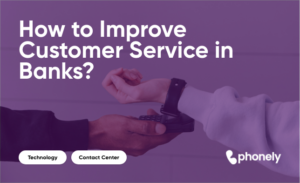Take the guesswork out of marketing success. Get software that tracks calls, captures conversation data, and improves lead quality. A call tracking software can offer detailed attribution for marketing efforts and help you optimize ad spend. It tracks phone calls, identifies customer intent, and increases conversion rates by giving you actionable insights. We’ve put together a list of the 5 best call-tracking software solutions for 2024 to help you improve your marketing strategies and drive revenue. Let’s explore these top options to boost your business today.
What is Call Tracking Software and Why Do You Need It?
As a business using call tracking software, you can track phone calls and understand which marketing efforts are bringing you the most valuable leads. A call-tracking software is primarily used to assign unique phone numbers to different marketing campaigns and channels. So when a call comes in, you know where the customer saw your ad. It’s a window into the true marketing performance of your campaigns.
Key Features
Call tracking software comes in all shapes and sizes. Based on your tracking provider and your plan you will get all or some of these features.
- Dynamic Number Insertion: This feature automatically assigns unique phone numbers to your marketing campaigns on each channel. This can be Google Ads, paid search, or social media.
- Call Recording: All tracking tools provide call recordings, some even offer transcripts. This data can then be analyzed further or used for training and dispute resolution.
- CRM and Google Ads Integration: By nature, these tools have to integrate with CRMs and Google Ads to be effective. The thing to look out for is compatibility with your specific tech stack.
- AI-Powered Insights: Using natural language processing, AI can show insights about follow-ups and sales strategies.
Benefits
A tool like this can be invaluable when it comes to measuring the success of your marketing and sales team. By tracking phone calls, you can see what efforts bring the most revenue. Call routing features in some of these tools also make for better customer conversations and experience.
- Better Marketing Strategies: When running multiple campaigns on multiple channels, you can measure what efforts bring the most return for your business.
- Improved Sales Calls: These tools provide insights into customer intent. Knowing what approach works the best during sales calls can help you increase phone call conversions.
- Better Customer Experience: With advanced call routing, you can redirect calls to the right agent at the right time; enabling you to address customer needs in the blink of an eye.
- Improved Conversion: These tools allow you to track the full customer journey. From the ad that initiated the call to the recording and its key insights. You can then determine what part needs to be optimized for better conversion rates.
Choosing the Right Software
Choosing the right call-tracking software comes down to understanding your business needs, prioritizing key features, and ensuring the solution can scale as your business grows. Here’s how to make the best choice:
Choosing software comes down to knowing what your business needs, the features you will use and if the solution will scale when your business grows.
Assess Business Needs
Small to medium businesses need simplicity, affordability, and easy integrations with popular ad platforms and CRMs. Basic call tracking, call recording, and clear data analysis are usually sufficient.
Large enterprises with more complex marketing strategies need more advanced tools. If you are providing sales and customer support to other clients, then you too will have greater needs. Advanced enterprise-level software can give you all the features of an affordable one, but you also get; AI-enabled insights, dynamic number insertion, and real-time analytics. If your business uses both outbound and inbound calls, you too will benefit from enterprise-level tools. These tools provide insight into customer intent and lead quality which will be excellent for sales calls.
Key Features to Consider
Here are the key features that you should look out for when picking a provider. Prioritize the ones that will directly impact your business.
- Real-Time Analytics: You want to get a tool with real-time analytics built in. This is because you should know your call volumes, performance, and lead quality in real-time. With this data, you can make strategy changes on the fly. It’s the primary reason to get these tools.
- CRM Integrations: You need to ensure that this new tool integrates with your CRM. This way, all your call data is captured and organized. No manual entry, and when it’s time to call back, you have all the prospect information in one place.
Other features can be beneficial to your use case, but if the tool doesn’t offer these basics; then it’s a nonstarter.
Scalability
A tool that provides you scalability would immediately be more suitable for your business. Here’s what to look for:
- Flexible Pricing: Popular tools have multiple plans for your specific call volume. These are often tiered or have usage-based pricing. Make sure you know what you would be paying for the tool and when you should upgrade.
- Infrastructure: The system should be capable enough to handle large call volumes. Additionally, you should have customizable access, so specific teams can monitor their performance stats.
- Network Redundancy: Even under high demand, this tool should be able to track all phone calls.
- Rule-Based Routing: Based on the time of the day or year, you can route calls in a specific manner. You can ensure that a query is answered by an agent most suitable to handle the call based on location or time of day.
Now let’s get to our picks for the best call-tracking software based on features, price, and the scale of your business. Remember, you don’t need the one with all the bells and whistles; just the one that serves you the best.
Our Recommendations
CallRail
Best for SMBs (Small and Medium Sized Businesses) that need inbound call tracking and marketing attribution.
CallRail is a leading software SMBs use that runs Google Ads and other paid search formats. Their dynamic number insertion (DNI) feature allows businesses to track calls and attribute them to specific marketing efforts. This means that every marketing channel or campaign can have a unique phone number, so you know the source of the call. CallRail also records all calls and gives you detailed insights into conversation data. With this information, you can optimize your ad spend and double down on what’s working the best.
Key features:
- Dynamic number insertion (DNI) to track multiple platforms/channels.
- Call recordings to analyze what your customers are saying to your agents.
- Multi-channel tracking with clear channel attributions, so you can optimize your ad spend.
- CRM Integrations like Salesforce, Google Analytics, and HubSpot.
Limitations:
- Limited advanced AI features: CallRail lacks AI-powered conversation intelligence, which means you won’t get deep insights into customer intent as with more advanced tools like Invoca.
- Not ideal for large enterprises: While it’s great for SMBs, large enterprises needing complex workflows and more advanced customizations may find CallRail too basic.
2. Invoca
Arguably the best call monitoring tool that’s suitable for large enterprises. It has AI-powered call insights and it can determine customer intent.
Invoca has conversation intelligence powered by AI. This means that beyond basic call monitoring functions, Invoca has Natural Language Processing (NLP) and Machine Learning (ML). This makes it possible for the software to determine the caller’s intent, lead quality, and any sales opportunities. With deeper insights into conversations and live interactions, you can spot trends in customer concerns and requests. You can then alter your marketing material to target these pain points. Honestly, Invoca is a solid tracking solution, and if deal with sizeable call volumes; this should be on your radar.
Key features include:
- AI-powered conversation intelligence to analyze calls and elevate lead quality.
- Real-time call tracking to monitor conversions.
- CRM integrations with enterprise-level tools.
- Customizable access roles to control who sees what.
Limitations:
- High cost: Invoca is expensive by comparison and users report that the contracts are rather hefty. This makes it less accessible for SMBs.
- Complex setup: Given the feature set of Invoca, the setup process is complex and can require dedicated resources to set up and maintain.
CallTrackingMetrics
For businesses that need a solution that covers inbound and outbound call tracking. It comes with AI-enabled conversation intelligence like Invoca and it provides detailed marketing attribution.
CallTrackingMetrics provides a range of features typically found in a full business phone system like call-tracking, AI-driven insights, and marketing attribution. With these tools, you can measure both, marketing performance and sales activities. It helps companies analyze customer intent, improve lead quality, and make data-backed decisions for all their phone call types.
Key features
- Inbound and Outbound Call Tracking: You can track calls across all marketing channels and sales teams, so you know which efforts drive phone leads and conversions.
- AI-Powered Conversation Intelligence: Just like Invoca, CallTrackingMetrics can also transcribe calls, analyze sentiment, and score leads.
- Call Routing: CallTrackingMetrics comes with the ability to automate call routing, which ensures each call goes to the right team or agent
Limitations
- Cost: The advanced feature set comes with a hefty price tag which will not be palatable for small businesses.
- Complex: The feature set includes AI analysis and detailed attribution, making the learning curve much steeper compared to something like CallRail.
WhatConverts
Best for businesses that want a holistic view of their leads across all marketing channels, not just calls. This includes conversions made through chats and e-commerce as well
WhatConverts offers lead tracking, compared to call tracking in other software. What this means is that you can track leads from phone calls, forms, chats, e-commerce, and much more. It’s a great tool for multi-channel campaigns that have multiple conversion points.
Key features
- Multi-channel lead tracking across calls, forms, and e-commerce.
- Detailed marketing attribution that tracks leads back to their source.
- Real-time analytics and custom reporting for in-depth insights into lead quality.
- CRM integration to automatically log and manage all leads in your existing sales pipeline.
Limitations:
- No AI Insights: WhatConverts does not offer deep conversation intelligence or AI-powered call insights like Invoca or CallTrackingMetrics.
- Not as advanced: Ringba is more capable at handling high call volumes due to its network redundancy features and customization.
Ringba
The best tool for businesses that have fluctuating call volumes and need a customizable solution.
Ringba is a highly customizable call-tracking platform. What makes it customizable are its customizable workflows for complex call handling requirements. Additionally, Ringba offers pay-per-call and pay-per-minute plans which could be good for businesses with fluctuating call volumes.
Ringba offers a highly customizable call-tracking platform designed for businesses that handle a high volume of phone leads. It provides real-time analytics, network redundancy, and dynamic number insertion, allowing businesses to track calls at scale across various marketing channels. Ringba also supports businesses with large, complex marketing efforts by offering deep customization options and actionable insights into call data and lead quality.
Key features
- Dynamic number insertion for tracking incoming calls from multiple campaigns.
- Network redundancy to ensure no calls are missed, even during high-traffic periods.
- Real-time analytics with detailed insights into call volume, lead quality, and campaign performance.
- Customizable tracking and reporting options to highlight the information, you think is valuable.
Limitations:
- Learning curve: Ringba requires a high level of technical expertise. The customizations make for a complex tool and it can be difficult to set up.
- Higher price point: The customization comes at a price. This is not ideal for small businesses that just need basic call monitoring.
The Verdict
- CallRail is best for SMBs that need marketing attribution. It offers simple and effective call tracking. There is multi-channel attribution for campaigns across platforms like Google Ads and other social media.
- Invoca is right for large enterprises that need AI-powered insights to understand customer intent and improve lead quality at scale.
- CallTrackingMetrics is for companies that need inbound and outbound call tracking. You get conversation intelligence and detailed marketing attribution for sales and marketing teams.
- WhatConverts is best for multi-channel lead tracking. It is made for businesses that want to track leads across various touchpoints like phone calls, forms, and e-commerce to provide a holistic view. If your CRM or marketing automation tool already provides these, you can use a more basic tool for just phone calls.
- Ringba is best for high-volume, customizable call tracking. You can customize the level of control with customizable workflows, real-time analytics, and dynamic number insertion. If you have fluctuating call volumes, Ringba is the pick.

